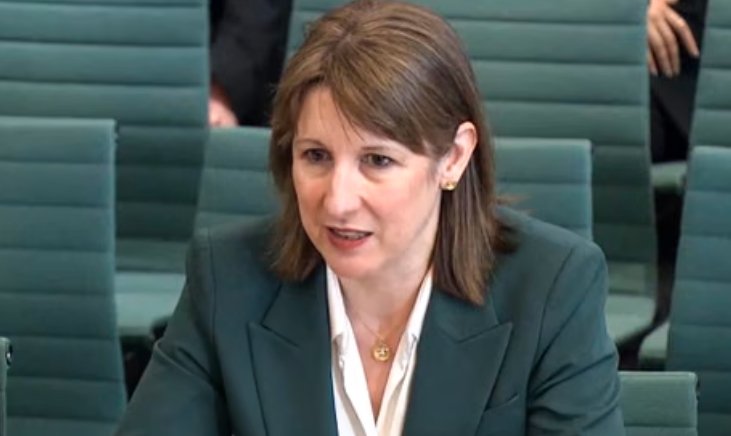The Chancellor prepares to visit key defence and energy sites in Scotland, as Labour sets out its plan to boost growth and jobs north of the border.
Scotland is getting a front-row seat in Labour’s economic plans.
Chancellor Rachel Reeves has announced that billions of pounds in investment are being steered into Scotland, with a focus on defence and clean energy—sectors the government believes will define the country’s industrial future. Ahead of a high-profile visit to Moray and Aberdeenshire on Friday, Reeves doubled down on Labour’s pitch that Scotland is key to the UK’s long-term growth story.
Defence Spending in Focus at RAF Lossiemouth
Reeves will first travel to RAF Lossiemouth, a military base in Moray where the UK’s defence strategy is quietly transforming.
It’s also where Boeing staff are currently working on three E-7 Wedgetail aircraft, critical surveillance and command planes that will strengthen the Royal Air Force’s ability to respond to global threats.
The Chancellor is expected to meet around 200 Boeing employees during her visit, part of a broader push to showcase the defence sector as a job creator and growth engine in Scotland.
Labour’s headline promise? Increase UK defence spending to 2.6% of GDP.
The Treasury says that could boost Britain’s economy by 0.3% and deliver over 26,000 jobs in Scotland alone. Whether it happens, of course, depends on future budgetary battles—but the framing is clear: Labour wants to place Scotland front and centre of its security and manufacturing agenda.

Carbon Capture Project Could Reboot North-East Economy
After Moray, Reeves will head to St Fergus gas plant in Aberdeenshire—the site linked to the Acorn carbon capture and storage (CCS) project.
The Acorn project has long been seen as a potential flagship for the UK’s green transition, especially in Scotland. It aims to repurpose North Sea infrastructure to capture and store carbon emissions underground, preventing them from entering the atmosphere.
It hasn’t broken ground yet. A final investment decision is still pending. But the UK Government has already pledged £200 million toward the project.
If the numbers hold, Acorn could:
-
Create up to 15,000 new jobs
-
Safeguard 18,000 existing roles
-
Accelerate decarbonisation in the North-East
-
Reposition Scotland as a leader in clean energy exports
The potential is huge. But some in the region are still waiting for hard timelines and clarity.
Labour Looks to Cement Its Economic Pitch in Scotland
This visit marks Reeves’ second trip to Scotland in a week. Just days ago, she was at the Rolls-Royce facility near Glasgow Airport, a site with close ties to defence aerospace and energy innovation.
Why the focus? Two reasons.
First, Labour is eager to showcase economic credibility heading into a likely 2026 general election. Second, Scotland has become a political battleground where Labour senses opportunity. The SNP is wobbling. The Conservatives are stagnant. And the Liberal Democrats are still in rebuild mode.
Reeves’ messaging taps into that gap. “We’re seizing the huge potential and opportunities that Scotland has on offer,” she said.
And the themes are clear:
• Defence: Framed as vital to security and jobs
• Clean energy: Sold as the growth industry of the next 30 years
• Workforce investment: Appealing to industrial regions and former oil hubs
There’s a noticeable shift from simply “talking Scotland up” to laying out precise numbers and visits that make it harder to dismiss as spin.
Still Skepticism in Some Quarters
But not everyone’s convinced.
Some Scottish politicians and energy experts have raised questions about the pace of carbon capture investment, especially after past delays and uncertainty around Acorn.
The UK Government initially passed over the project in its first round of CCS funding, only to backtrack under pressure from Scottish business groups and MSPs. There’s hope, but also frustration.
Meanwhile, the 2.6% defence spending pledge sounds bold but comes with caveats. Critics argue that unless it’s locked into future budgets, it’s just a political promise.
Others note that while defence jobs are welcome, many of them require specialised skills not yet widespread across Scotland’s workforce—meaning the benefits could take years to materialise.
One sentence from an Aberdeen-based economist summed it up: “There’s a difference between investment announced and investment delivered.”
Labour’s Economic Gamble: Can They Turn Investment Into Votes?
Friday’s trip isn’t just about photo ops and site visits. It’s about sending a message to voters: Labour wants to be seen as the party of both economic revival and industrial seriousness.
The big question? Will voters in Scotland—especially in areas that once leaned SNP or Tory—buy it.
If Reeves’ numbers hold, and if Acorn finally gets the green light, Labour could ride a wave of credibility into Scottish constituencies that were once out of reach.
But if timelines slip, or if investment doesn’t translate into visible jobs and prosperity, the criticism will come fast.
For now, Reeves is betting that Scotland is not just ready for investment—but that it’s also ready to return to Labour.


















